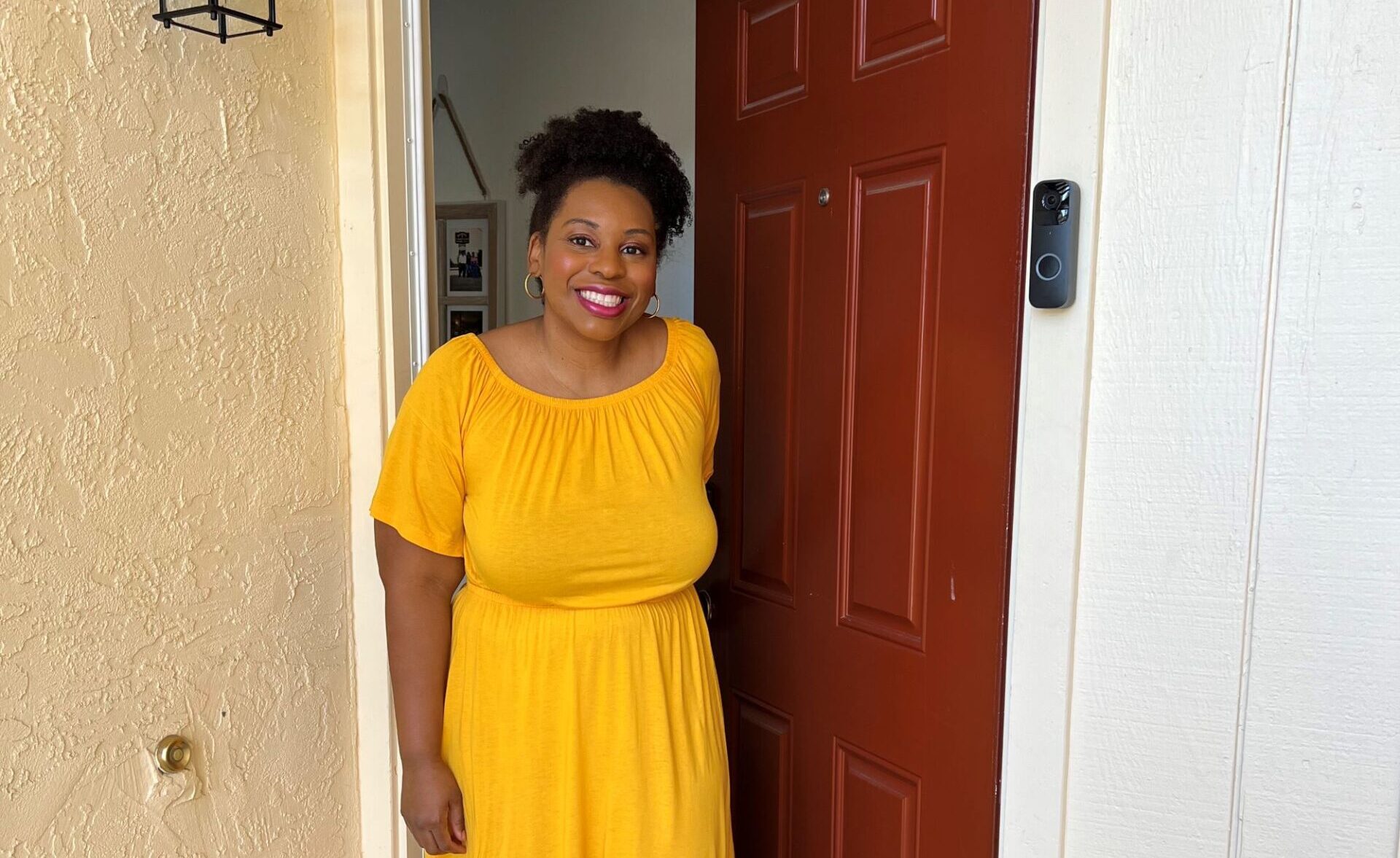Building Black Wealth through Homeownership
Building Black Wealth through Homeownership
At 35 years old, Astrid Heim knew that buying a home would help to build the foundation she wanted for herself and her future family. She worked in the biotech industry, but when she initially pursued a loan on her own, it wasn’t close to the amount she needed. In 2022, with a loan from Black Wealth Builders Fund, she purchased a three-bedroom condo with that future family in mind.
Black Wealth Builders was launched only one year prior to Astrid’s home purchase, when one California Bay Area church considered the growing call for reparations and how they, as a congregation, could respond.
Members of Arlington Community Church (UCC), a predominately white congregation, had formed an anti-racist discussion group in the wake of the murder of George Floyd, and then moved into action. They decided first to engage in conversation with local Black leaders to learn what the community needed.
“I think it’s important for congregations that want to do this work to find Black folks to do the work with and to get their input and actually be in solidarity with the community,” said Rev. Celestine Fields, pastor of Arlington Community Church.1
In those conversations, one need was expressed over and over: housing.
There were few Black homeowners in their area, a trend which can be traced to segregation, redlining, and the systematic rejection of loan applications and withholding of mortgages from Black Americans. These racist policies and practices, even if not all currently in effect, have had a long-term and significant impact on Black homeownership and the wealth-building opportunity it provides.
Arlington Community Church’s response was to create Black Wealth Builders Fund, a foundation for lending interest-free funds to help Black Americans purchase their first home. In the church’s thinking, the loan fund not only provides a path to home ownership but also expressly welcomes Black individuals and families as members of the community.
Labeling the fund as a “reparations project,” however, has not come without pushback. The foundation was born in a time of national debate on what constitutes reparations and the merits and harms of labeling personal or private efforts as such. The organizers themselves admit that it is an “imperfect” example of reparations, and that ideally the subsidies and down payments would not have to be repaid.2
When the church began fundraising during Lent in 2021, the original goal was to create a fund of $50,000, hoping to help just a few individuals or families. To date, they have raised about $330,000 — with donations from churches, community organizations, individuals, and the California Association of Realtors — and they have provided 15 interest-free loans (to be paid back only when the home is refinanced or sold) and helped 21 first-time homebuyers. Loans range from $15,000 to $20,000 and can be used for down payments, closing costs, or other needs associated with buying a first home.
Susan Russell, one of the founders of the fund, said, “This project has succeeded beyond anything we thought possible. We were hoping to raise $50,000 to help just a few Black homebuyers, but we quickly realized that interest in this project—and the need for it—were much greater than we first thought.”
The ministry cites a biblical foundation — Leviticus 5 (in which God tells Moses that God’s people should make restitution when they become aware that their sin has harmed others) and Luke 19 (in which a changed Zacchaeus determines to repay with interest those he has overcharged for their taxes) — in its resolution. The fund also fits the church’s larger mission “to be stewards of creation and to build a just society based upon the inspiration of our faith.”
“Arlington Community Church and the United Church of Christ have a rich history of social justice work. This project inspires us to keep that tradition alive,” says Russell.
No more than a year into home ownership, Astrid said, “I can see the benefits already.” She can rest easier at night knowing that her rent won’t increase, and even recently discovered that her property value has risen after only a few months of owning.
1 https://www.ucc.org/bay-area-church-fights-racism-by-raising-money-for-down-payments-on-homes/
2 https://nextcity.org/urbanist-news/a-bay-area-church-attempts-housing-reparations
This story is part of Lake Institute’s story collection, the Faithful Generosity Story Shelf, which highlights congregations and other religious organizations who have sought to use their assets and resources in creative—and sometimes surprising—ways as an expression of faithful giving.
Each entry in our Story Shelf is short enough to be read and discussed during a committee meeting or other group gathering. Our hope is that these accessible vignettes will spark new questions, conversation, and imagination among clergy and laity about what might be possible with the funds, buildings, land, and other resources in their care. If you know a story that should be included in the Story Shelf, suggest it here.
Subscribe
Insights, a bi-weekly e-newsletter, is a resource for the religious community and fundraisers of faith-based organizations that provides:
- Reflections on important developments in the field of faith and giving
- Recommended books, studies and articles
- Upcoming Lake Institute events

